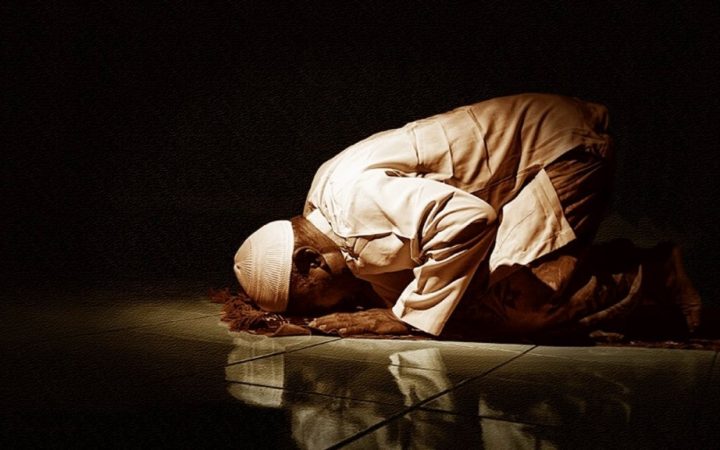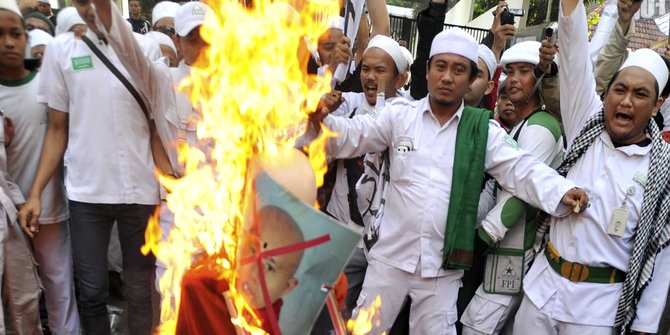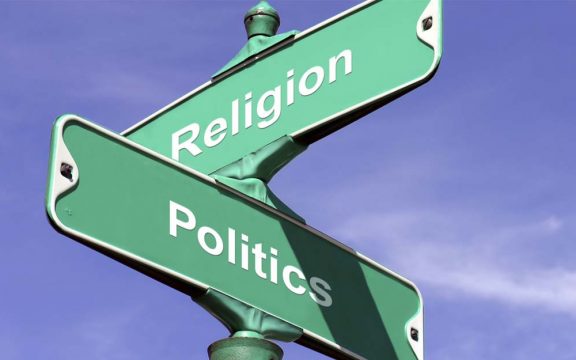Paulo Freire’s theory on the stage of human consciousness explained the position of religion in human life. According to Freire, there are three levels of human consciousness. First, the magical consciousness, comes up with an argument that human destiny is determined by natural factors, or supernatural (beyond nature). Why are Jakarta residents struck by flood? Jakarta is flooded because of the heavy rain (natural factors) or because God wants it (super natural).
Second, naive awareness, which explains that human destiny is determined by his own actions. Why is Jakarta flooded, for example? Because the population is littering, causes trash and flood.
Third, critical awareness. It explained that human destiny is determined by the existing structure or system. For example the economic system, politics and other systems. Why is Jakarta flooding? Because there is no policy system that regulates such that rainfall converting into a blessing, especially in the summer later.
Of course Paulo Freire wanted an education to be a process of achieving critical consciousness. There is not only rice behind the works of farmers, but there is a farming system or, in the bigger picture, food policy regulated by the government. There is a trading system that sometimes harms the farmers and makes the distributors rich instead. This is the awareness that sees everything in layers of meaning.
Pilgrimage, for instance, is not only seen as a religious obligation, so it is only a matter of conditions, rukun, wisdom, etc., but it is an economic event involving fund turnover in fantastic numbers, political events involving important decisions such as quota, and it is said that now an online pilgrimage registration system is being established to bridge the pilgrims to the government of Saudi Arabia.
Now back to the matter of religion and humanitarian awareness. As Muslim, I believe that every religion, especially those brought by Allah’s messengers, had an initial mission to enforce humanity. Faith in Allah requires a wise attitude towards humans, even His creatures.
But in the hands of His people, religion seems to depend on their humanitarian consciousness. Religious people whose dominant with a magical awareness will see all things as God’s provisions or see every religious teaching is only the relationship between human and God, or more specifically religious teachings are lived as God’s commands that people must obey.
This kind of awareness is very calming in dealing with bad situations or unluck possibilities beyond our control. For example, death. When our beloved ones die, since it is impossible to be revived, it is more peaceful to accept the death as God’s absolute provision. Even when boarding a plane, whether the plane will land or crash is out of our control as passengers, so that the absolute surrender to God’s will for fate is very calming (personal experience).
However, this awareness is quite dangerous because it can be misused by other parties to submit absolutely to their interests which are wrapped as God’s “interests”. Disobeying people’s interests could be justified as going against God. It seems that such manipulation of the religious consciousness of religious people provided initial context of of the famous “religion as opium of the people” and the “death” of God.
In the hands of religious people with naive awareness, there are quite different impact. They have started to link religious teachings with the benefit of humans, but only to the extent of individuals. Religion is God’s guidance to be good to anyone and anything as fellow creatures of God.
Faith guides religious people to be a good husband/wife, good parents/ children, people who say good things, respect guests, neighbors, people who do not torture animals, nor damage nature. In short, faith in God requires that we behave well (good deeds) so that we become sholeh / sholehah people.
Finally, in the hands of people with critical awareness, religion is not only understood as a guide to do good (good deeds), but also uses power to order all parties to act appropriately (amar ma’ruf), and forbid them from evil, arbitrary acts (nahi munkar). Religion is a matter of creating a system of life that gives good to the universe, across countries, religion, humans, and even creatures.
Religion must be lived as a power to uphold the values of justice and humanity so that religious interpretations must be fair and humane. Therefore, religious prosecution that oppresses anyone must be rejected.
The history of the presence of the Messengers is colored by their tension with community leaders (al-mala’). In current terms they may be actors of social change, both political actors (despotic rulers), economic actors (selfish businessmen), even religious actors (religious authority owners who choose to support them rather than accompanying people who are victims of tyranny), and etc. Thus, the presence of religion is a history of resistance to a system of wrongdoing, or systemic injustice.
This is the difference. Paulo Freire may have a social experience where the arbitrary actions of political and economic actors make people helpless in poverty. Religion becomes solace. Heaven makes them not lose hope to be able to live happily.
We have diverse experiences with religion in Indonesia. The diversity is not only in religion, but also in religious awareness. Islam, for example, aside from being the guard for its people when they are powerless in the face of colonialism, it also becomes a power to actively fight it. That is, Paulo Freire’s level of humanitarian awareness is still relevant in Indonesia, although it still requires contextualization. For example, by viewing these three humanitarian consciousnesses as something synergistically integrated.
Faith in Allah must be a spiritual power that moves a Muslim to build personal piety, as well as structural or systemic. Attitudes to only worship one God (monotheism), not while worshiping others, must create a benefit of His fellow creatures. Otherwise, worshiping other than Allah or worshiping God while worshiping anything or anyone other than that, will inevitably end in mischief and damage the life system of humans / other creatures.
The substance of religion is how to hone faith to be able to encourage the realization of the greatest possible benefit. Benefit for the parties themselves as well as other parties as wide. The religious mandate is not only to be a good husband/wife, parents/child but also to build a family system that not only provides benefit to all family members without exception, but can also provide benefit to other family members as wide.
So, substantively someone’s Islam, family system, economy, politics, culture, knowledge, etc. is marked by the extent to which it can benefit the their self and others as widely as possible in accordance with the mission of Islam as a religion that is to be a blessing for the universe.
Translated from origin article : https://islami.co/agama-dan-kesadaran-manusia/, by : Dr. Nur Rofiah on 4 January 2020.
![Islami[dot]co](https://en.islami.co/wp-content/themes/jambualas/images/logo.png)


